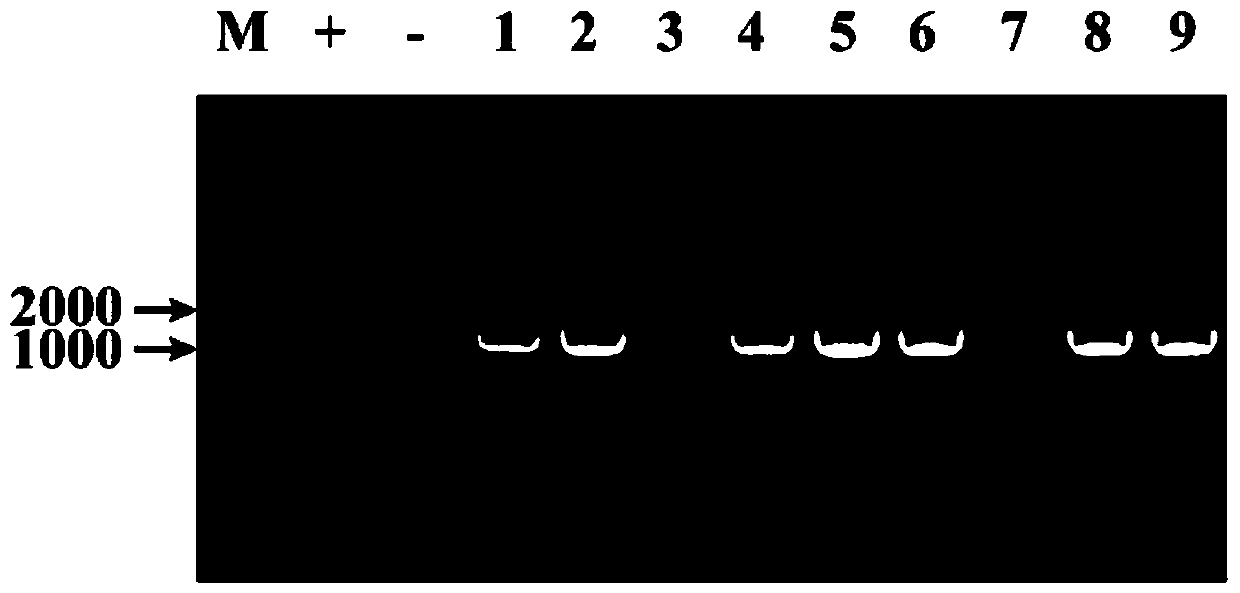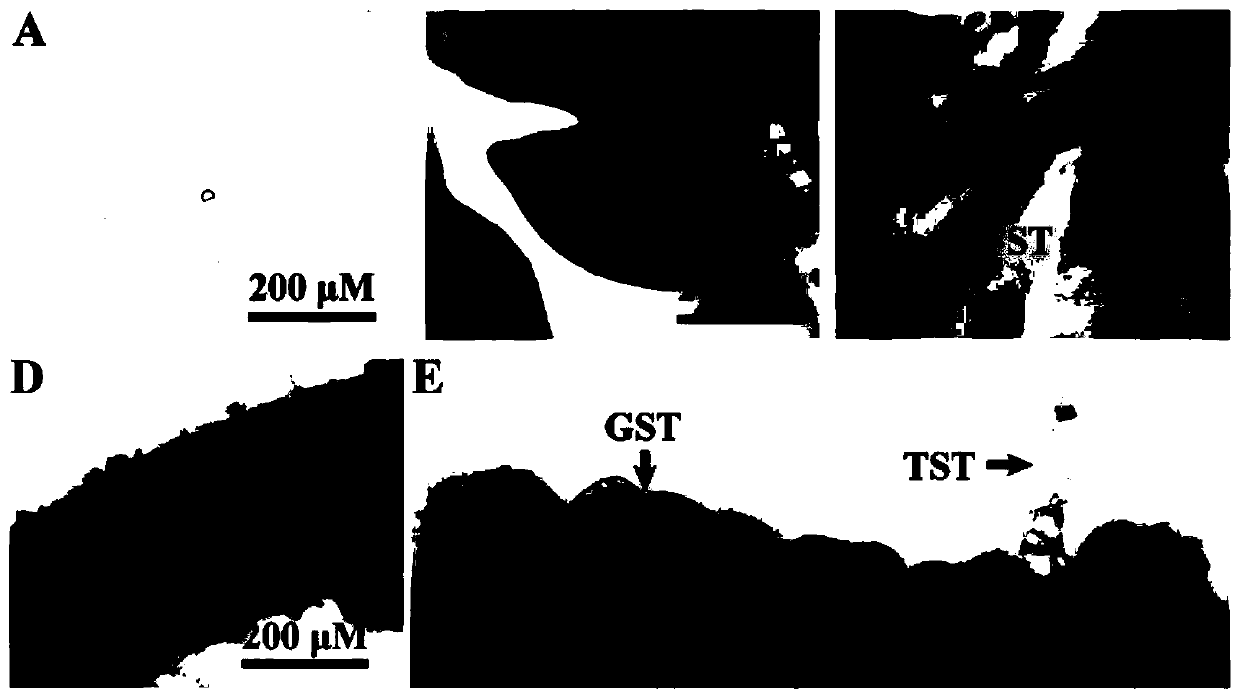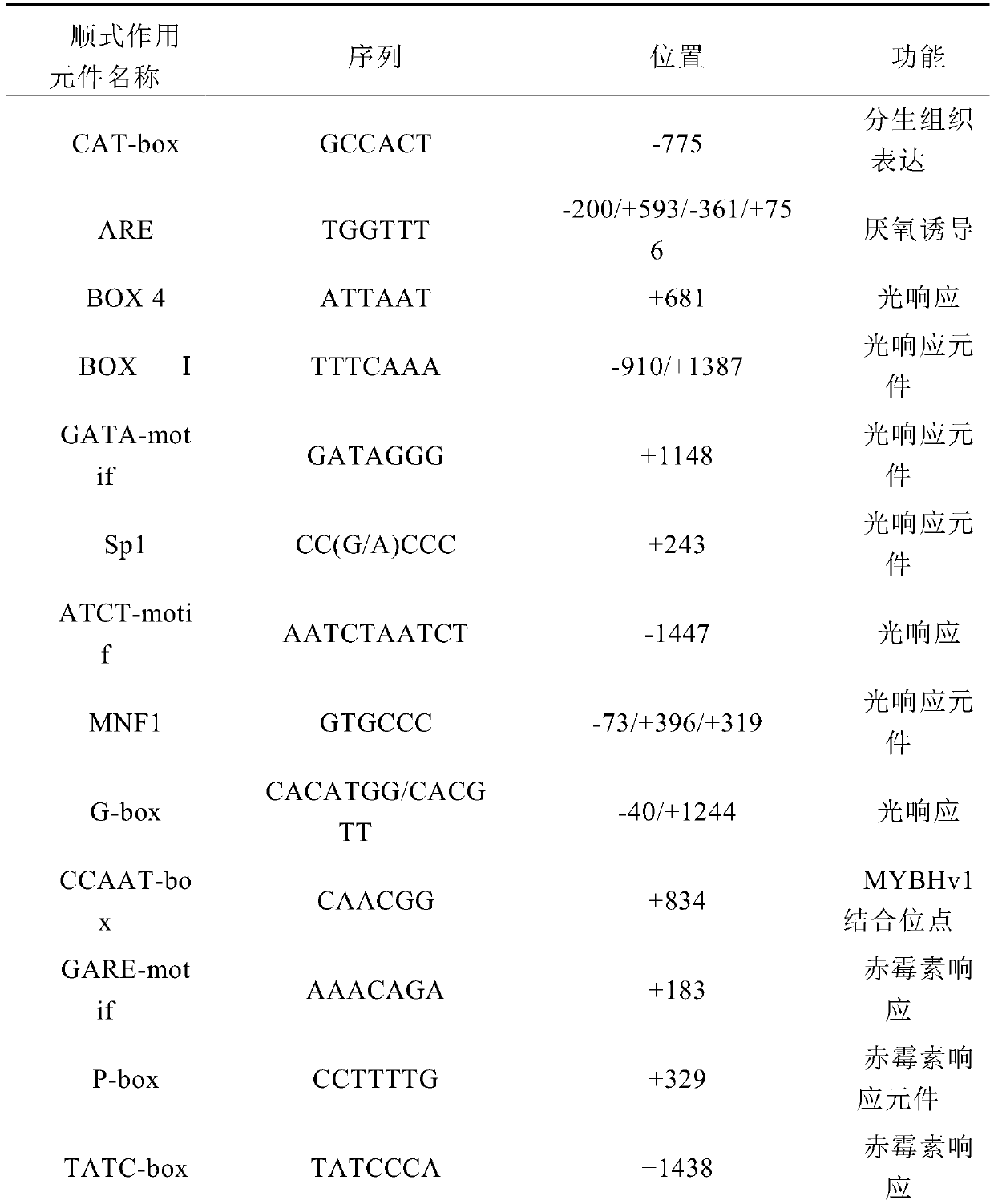Glandular hairs of Artemisia annua dominantly express aatcp14 gene promoter and its obtaining method and application
A promoter and gene technology, applied in the field of plant biology, can solve the problems of temporal and spatial regulation of target genes, excessive consumption of cellular material and energy, and harm
- Summary
- Abstract
- Description
- Claims
- Application Information
AI Technical Summary
Problems solved by technology
Method used
Image
Examples
Embodiment
[0044] This embodiment relates to the acquisition of the AaTCP14 gene promoter, which specifically includes the following steps:
[0045] Step 1. Cultivate aseptic seedlings of Artemisia annua
[0046] Artemisia annua seeds were soaked in 75% ethanol for 2-3 minutes, rinsed with sterile water once, then soaked in 20% (w / v) NaClO for 20 minutes, rinsed with sterile water for 3 to 4 times, and rinsed with sterile water. Bacteria absorbent paper was blotted to dry the surface moisture, inoculated on hormone-free MS solid medium (using the solid medium invented by Murashige and Skoog in 1962, which can be obtained through commercial channels), at 25°C, 16h / 8h ( daylight / dark) culture, and the aseptic vaccine of Artemisia annua can be obtained after 14 days;
[0047] Step 2: Cloning of the promoter sequence in the genomic DNA
[0048] 1. Genomic DNA extraction
[0049] Add 2 steel balls into a 2.0mL centrifuge tube, and put a piece of Artemisia annua leaf (1cm 2 About the size,...
PUM
 Login to View More
Login to View More Abstract
Description
Claims
Application Information
 Login to View More
Login to View More - R&D
- Intellectual Property
- Life Sciences
- Materials
- Tech Scout
- Unparalleled Data Quality
- Higher Quality Content
- 60% Fewer Hallucinations
Browse by: Latest US Patents, China's latest patents, Technical Efficacy Thesaurus, Application Domain, Technology Topic, Popular Technical Reports.
© 2025 PatSnap. All rights reserved.Legal|Privacy policy|Modern Slavery Act Transparency Statement|Sitemap|About US| Contact US: help@patsnap.com



